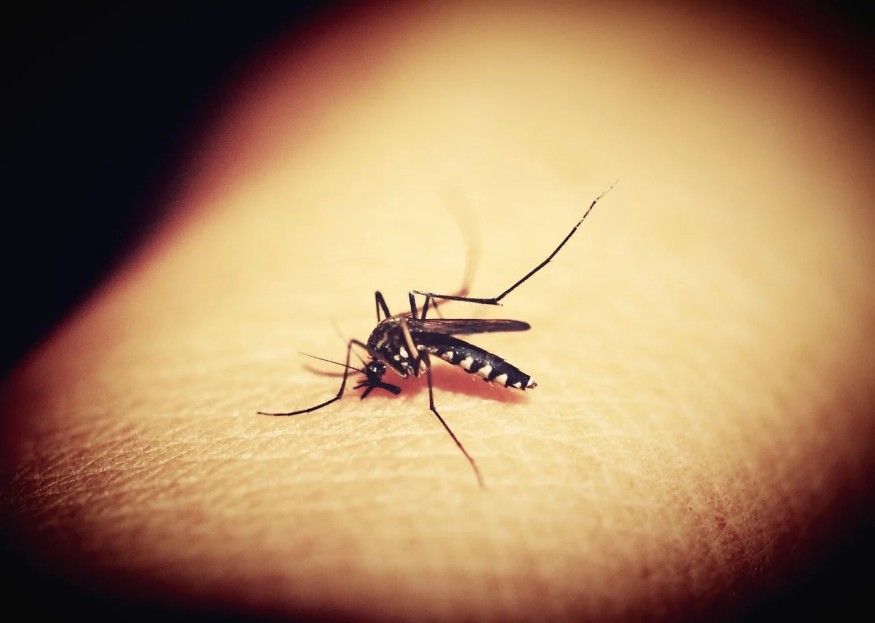University of Melbourne entomologist Perran Ross lets his arm be fed upon by a mosquito swarm experimentally infected with a Wolbachia bacterium, a part of the overall worldwide strategy of eradicating dengue mosquitoes.

The Dangers of Dengue
Dengue is caused by a virus that is transmissible among mosquitoes and humans. The disease symptoms include vomiting, headache, muscle pain, high fever, and skin rash.
Unfortunately, a portion of all those who have dengue gets hemorrhagic fever and shock syndrome, which causes severe vomiting and bleeding under one's skin.
According to the WHO or World Health Organization, infections per year are increasing, and last year's tally was 4.2 million infections.
COCONUT OIL: A Potent, Safe Insect Repellent
Cases in Australia
In Australia, outbreaks of dengue thankfully do not happen anymore. In Northern Queensland, sporadic attacks sometimes occur when mosquitoes bite infected travelers, and these insects bite other people, spreading the virus.
However, cases have plummeted in the country in the past few years. Cairns Tropical Public Health Services director Dr. Richard Gair says that Northern Queensland is finally free of dengue after 100 years, thanks to Wolbachia.
Time-lapse mosquito feeding pic.twitter.com/AJx5iy1gqr — Perran Ross (@MosWhisperer) December 12, 2017
Using Bacteria to Eradicate Dengue
Scientists and the public continually release mosquitoes that have been laboratory-infected with the bacterium Wolbachia in Northern Queensland since 2011. Wolbachia is known to infect at least 17 percent of all insects.
This bacterium naturally blocks dengue transmission. It is also transmitted to the succeeding mosquito generations and has no apparent effect on humans.
This makes it a potential weapon in the fight to eradicate dengue.
Unfortunately, this bacterium does not occur naturally in the mosquito Aedes aegypti, the species that transmits the dengue virus. Also, it is difficult to infect them en masse.
READ: Asian Hornet Warning: Spotted in Hampshire, Dangerous to Bees and Humans
Infecting Mosquitoes with Wolbachia
According to Ross, to be effective, A. aegypti eggs need to be infected in the laboratory. Very fine needles stab mosquito eggs with the bacteria, then those cells in the egg with the Wolbachia are transferred from one mosquito egg to another.
Once a Wolfbachia-infected mosquito breeding line is established, the new generation can be distributed. The target is one mosquito per three up to ten houses per area.
This means hundreds of thousands must be bred in the laboratory to make them effective.
Feeding the Mosquitoes
Unfortunately, the laboratory work also necessarily means the mosquitoes must be fed. Ross lets himself be their food. Ross has fed up to 5,000 mosquitoes in one day.
He plans to feed more in the name of science.
Wolbachia and Other Mosquito-Borne Infections
In addition to curtailing dengue, Wolbachia could also limit other mosquito-borne infections. It also shortens the life of infected mosquitoes.
This makes mosquitoes infected with Wolbachia suitable for release in places with chikungunya and Zika virus epidemics.
In some Chinese islands, mosquitoes have been eradicated by irradiating them to sterilize them.
In Kuala Lumpur, the release of Wolbachia-infected insects has already reduced dengue cases by 40-60 percent; the health ministry is expanding the program because of the initial success.
The World Mosquito Program
The World Mosquito Program is getting these mosquitoes to more affected areas in other countries and has already released them in 12 nations.
Ross is optimistic that dengue can be eradicated despite the various challenges. He says infecting dengue mosquitoes with Wolbachia is expensive and needs community planning and engagement, but it is possible.
READ NEXT: Honeybee Pollinators of the Almond Industry Experience Die-Offs by the Billions
Check out more news and information on Insects on Nature World News.
© 2025 NatureWorldNews.com All rights reserved. Do not reproduce without permission.





